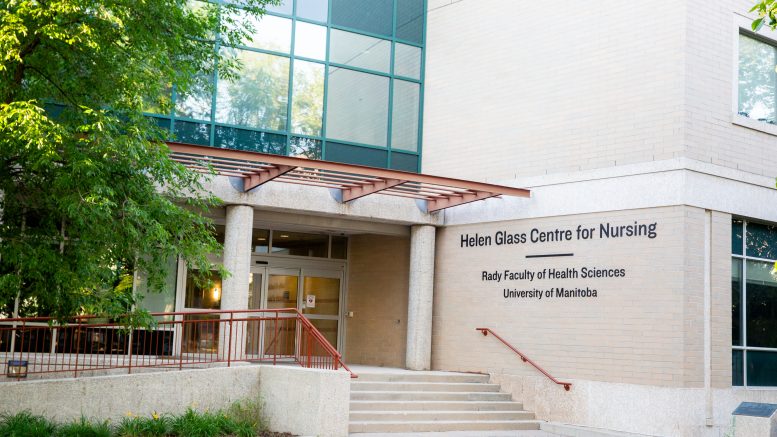The U of M college of nursing has introduced its first summer cohort of 120 new students amid the province’s shortage of health-care professionals. The steep increase has led to necessary building and staffing expansions for the program.
It is not new for the college of nursing to have summer, fall and winter admissions of students, as associate dean (undergraduate) Nicole Harder explained.
Three-term cohorts existed at U of M in the early 2000s. Harder said the three-term model that ran in the 2000s did not continue because at the time, there was no longer a need for the number of nurses being trained within the province.
“The way that all of the nursing programs work is that we essentially educate what we need, meaning we don’t want to have a surplus of nurses because we need jobs for them,” she said.
The college has hired 17 new permanent instructors and 13 support staff within the past 18 months. With the increase in staff and students, the expansion has led the program to “outgrow” the Helen Glass Centre for Nursing, said Harder.
To accommodate the expansion, an additional 20 office spaces, 10 research assistant spaces and three simulation suites will be added in the U of M Education Building for the program to use.
Harder said that the office and research assistant areas will be put to use beginning in fall 2023, but the simulation suites will not be used until winter 2024 so students will not have to change lab buildings in the middle of the fall term.
The advantage to the cohort expansion, as Harder sees it, is that the increase in funding has allowed for improvements to the student experience, giving them more opportunities to learn outside of a clinical or hospital setting.
Harder said she has been impressed with the number of people applying for college of nursing positions, and that the number and quality of applications is “a good indication that people want to work at the University of Manitoba.”
However, the college of nursing continues to face challenges hiring nurses with PhDs. This problem existed before COVID-19, but as explained by University of Manitoba Faculty Association president Orvie Dingwall, the issue has been exacerbated by the pandemic.
“The nursing program isn’t just about teaching nurses how to be nurses,” she said, adding that health-care research and advanced education allows for the offering of master’s and PhD programs.
Harder echoed this sentiment, as nurses with PhDs are necessary to teach nursing students, many of whom will be the “educators of the future.”
Currently, there are three open tenure-track positions within the college of nursing, making it more difficult to teach future instructors.
For students who may need to take a term off from school, Harder sees the three-term program as an opportunity for student flexibility. With the courses repeating over all three terms, students have the ability to take any of the terms off if necessary, as opposed to the fall and winter term model where students could only take the summer off, often to work. In the new model, students can now start right where they left their studies after a term off.
Harder also said students believe the expansion will provide more opportunities to get into nursing.
“Nursing is extremely competitive, we have about three or four applicants for every seat that we have, and so by having 120 more seats we can accept 120 more people into the program,” she said.
Dingwall, however, sees history repeating itself.
“We’re expanding the college of nursing at this time primarily because of a health-care crisis created by the provincial government,” she said.
She said that this issue has presented itself in the past, such as in the 1990s after Conservative governments made considerable cuts to health care.
With a large number of nurses retiring and the pandemic putting added stressors on the health-care system, the need for nurses has been exacerbated.
Dingwall said that expanding the nursing program is only one aspect of solving the larger health-care crisis and that the problem deserves long-term solutions, such as stable multi-year funding for all health programs, including nursing.
While faculty are excited to welcome new nursing students, Dingwall worries that the expansion may harm those in contract positions if history does again repeat itself, as staff could be out of a job.
“When you have precarious employment it’s really stressful,” she said. “You’re not able to focus the best when you’re worried about whether your contract is going to be renewed or not.”




